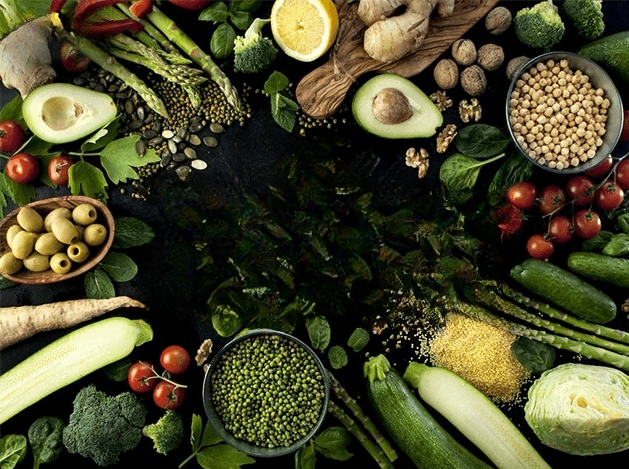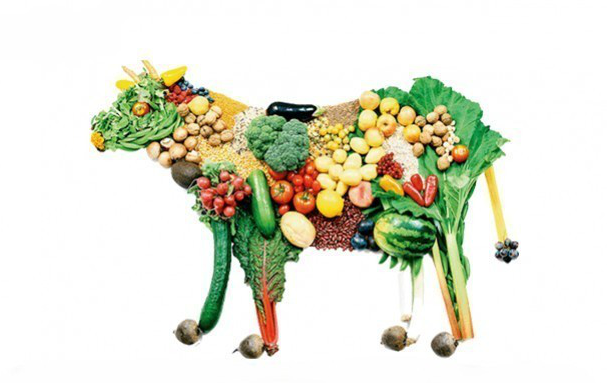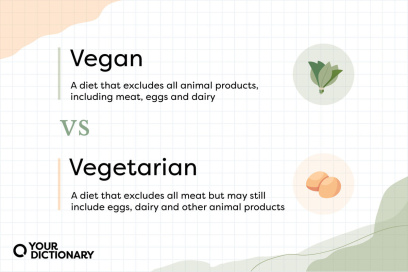Are you curious to understand what being vegan actually entails? Though it may seem like just a diet choice or trend, veganism is much more than that. It's about living an ethical lifestyle with mindful choices that reduce animal exploitation and promote sustainability. In this comprehensive guide, we'll cover all the principles of veganism, plant-based living benefits, ethical consumerism principles and more in depth - so let's dive in together and discover everything "What being a vegan means" includes!
I. Fundamental Principles of Veganism
What makes veganism unique?
When asked "what a vegan means," it's essential to comprehend its principles. Put simply, veganism is an approach to living that seeks to eliminate exploitation and cruelty towards animals. It supports the idea that animals are not commodities and should never be used for human purposes.
Veganism's core principles emphasize avoiding animal products, advocating for animal welfare and working toward environmental sustainability. Vegans strive to lead a life that displays kindness and compassion toward all living beings.
One of the primary goals of veganism is to promote animal welfare. Vegans believe animals should never be used for food, clothing, experimentation or any form of human entertainment. Ethical treatment of animals is at the core of this belief system and living a vegan lifestyle strives to reduce animal harm and exploitation.
Veganism's environmental benefits are immense. Animal agriculture contributes significantly to greenhouse gas emissions, deforestation, water pollution and other detrimental environmental impacts. With an ever-increasing human population and worsening climate change conditions, veganism is becoming a more popular way to promote sustainable living while decreasing its negative impact on the planet.
Overall, veganism offers several advantages such as improved health, environmental sustainability and animal welfare. It is more than just a trend or diet; veganism is an attitude and lifestyle choice. By reducing the use of animal products, individuals can help reduce animal exploitation, promote sustainability and live a more conscious life.
In the following section, we'll explore an essential aspect of veganism: plant-based eating. We'll outline its advantages and offer some helpful tips for making the transition.
II. Plant-Based Diet
Vegans focus their diets on plant-based foods like fruit, vegetables, legumes, nuts and grains. This lifestyle has been scientifically proven to have numerous health benefits; studies have even linked veganism with lower risks of cardiovascular disease, diabetes and cancer.
Vegan diets can provide all essential nutrients and vitamins needed for health, but vegans must ensure they get enough protein, calcium, iron, and vitamin B12 from plant-based sources. Examples of such protein-rich foods include soy products, lentils, chickpeas, quinoa, and amaranth; calcium-rich items include dark leafy greens with sesame seeds or tahini; iron is found in dark leafy greens as well as lentils tofu or pumpkin seeds; finally Vitamin B12 must come from animal sources so vegans should take supplements or consume fortified foods to prevent deficiency.

Transitioning to a plant-based diet can be daunting for some individuals, but it doesn't have to be done overnight. Here are some helpful tips for making the switch:
- Begin to incorporate more plant-based meals into your diet gradually.
- Include more vegetables and plant-based proteins like tofu or lentils into the mix, too.
- Experiment with new grains like quinoa or farro for an exciting change!
- Make vegan versions of your favorite meals, such as pizza, burgers and tacos.
- Discover new vegan restaurants or cafes for inspiration.
Going vegan not only benefits our health, but it has a significant environmental benefit as well. Animal agriculture plays an integral role in climate change by contributing to carbon dioxide and methane emissions - two gases linked to global warming. By choosing to eat plants instead of meats, we reduce our carbon footprint and help mitigate climate change's effects.
In conclusion, veganism emphasizes a plant-based diet as an integral component of living a healthy and nutrient-rich lifestyle. Not only does it minimize our animal product consumption, but it also has an enormous environmental benefit if implemented into our daily meals. No matter if you're just beginning your vegan journey or fully commit to the lifestyle, including more plant-based foods into your meals can provide numerous advantages.
III. Upholding a Cruelty-Free Conscience
Living a vegan lifestyle involves more than just what we consume. It includes all products used and clothes worn. Animal exploitation is unfortunately commonplace in the fashion and cosmetic industries, but there are plenty of ways to lead an ethical life and make consumer choices which promote animal welfare.
Vegan clothing and accessories can be made of materials such as cotton, linen, hemp and bamboo. There are also plenty of faux leather and suede options to choose from. Brands such as Matt & Nat and Wills Vegan Shoes specialize in vegan accessories while still upholding high ethical and sustainable production standards.
Vegan products in the cosmetic industry avoid animal-derived ingredients like lanolin, beeswax and carmine. Many cosmetic brands offer vegan alternatives such as Lush Cosmetics, Too Faced and The Body Shop.
Ethical consumer choices can extend to other areas of life as well, such as household and cleaning products. There has been an uptick in demand for animal welfare-friendly brands that avoid animal testing and offer plant-based items free from harmful chemicals. Companies such as Ecover, Seventh Generation, and Method specialize in producing such items while upholding high standards for ethical production practices.
Living a cruelty-free life not only promotes animal welfare but has far-reaching effects on the environment. Animal agriculture has an enormous negative effect on water and air pollution, so by supporting vegan brands and making ethical consumer choices we can reduce this negative impact of animal agriculture on our environment.
In conclusion, living an ethical and sustainable life as a vegan requires more than simply abstaining from animal products. It also means making conscious decisions about our consumption that have an impact on both environment and animal welfare. Fortunately, there is now an increasing selection of vegan-friendly items available, making ethical consumerism increasingly popular.
IV. Veganism and Ethics
Veganism is founded on ethical convictions. It recognizes animals as sentient beings deserving of respect and consideration. As vegans, we abstain from products which contribute to animal exploitation and strive to promote animal welfare.

Animal rights issues often stem from factory farming, animal testing and entertainment of animals. These practices perpetuate cruelty, suffering and exploitation towards these helpless creatures; it is our duty to fight for their rights.
Animal welfare activism is an integral part of veganism and there are plenty of ways to get involved. Organizations such as Mercy for Animals, PETA and the Humane Society actively promote animal welfare through legislative protections for animals and raising public awareness about pertinent issues.
In addition to activism, many individuals practice veganism out of compassion and kindness towards animals. By living a vegan lifestyle, we send a message to the world that animals are not commodities but deserving of respect and consideration.
In conclusion, veganism is about more than just diet; it affects all aspects of life. It promotes animal welfare, ethical consumerism and environmental sustainability. By raising awareness around these issues and advocating for animal rights, we can work towards creating a more compassionate world for all living beings.
Conlusion
In conclusion, we have examined what it means and means for vegans in great detail. We've discovered that veganism is more than just a dietary choice; it is an holistic lifestyle designed to promote animal welfare, ethical consumerism and environmental sustainability. By adopting this lifestyle individuals can reduce animal exploitation while encouraging sustainable living. With the growing availability of vegan options it has never been easier to embrace veganism - so if you're thinking about going vegan take that first step today towards living a more compassionate, healthy and sustainable life!




